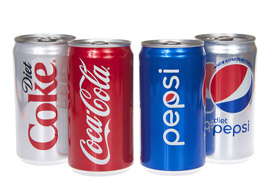
November 01, 2017

Source: BIgstock
I’m biased, but I can’t help pointing out that lots of smart rich guys are investing more in opinion journalism than you might expect. For example, Amazon’s founder Jeff Bezos, who overtook Bill Gates as the world’s richest man last Friday, spent a quarter of a billion of his own money to buy The Washington Post in 2013.
Bezos claims it’s profitable, but profit and loss is hardly the point. His goal is to shape the climate of opinion in ways favorable to his interests, much as Mexican monopolist Carlos Slim bailed out The New York Times in 2009 with a $200 million infusion.
A bigger purpose is less to change minds than to rule out inconvenient ideas. For instance, Harvey Weinstein got away with decades of bad behavior by controlling the means of production of public sentiment.
You probably can’t force the public to love you, but you can spend money on journalists to make their readers sense that it’s just not done to hate you.
You might notice that you haven’t read a lot in the American press about how Slim made a bundle off charging impoverished illegal aliens exorbitant fees to speak with their loved ones back home in Mexico. Nor have you heard much about how Slim married himself into a genuine Fascist dynasty, the Gemayel clan, founders of the Lebanese Phalange party.
That’s not considered news. The American news media traditionally gets its guidance on what is fit to print from The New York Times, and the Times hasn’t been in a hurry to cause embarrassment to its largest individual shareholder.
Similarly, the U.S. media has in recent years been more interested in topics such as transgender rights than in former staples of debate, such as the need for anti-monopoly enforcement.
In Mexico, Slim was more or less synonymous with the Mexican state since the 1990s, when he offered a $25 million campaign contribution/kickback to the ruling party at the notorious “Billionaires Banquet.” But recently Slim had the misfortune to fall out with the latest presidente, who opened up the Mexican market to an American competitor, knocking tens of billions off Slim’s net worth.
Things could be worse for Slim. He is still the sixth-richest man in the world, in part because he hasn’t had these problems in the United States since investing in the Times eight years ago. Donald Trump always calls it “the failing New York Times,” but from the perspective of Slim, the newspaper is working quite well.
Other billionaires have grown jealous of Slim and Bezos. In 2014, Hillary’s super-donor Haim Saban participated in a public forum with GOP super-donor Sheldon Adelson, who started a free newspaper in Israel to promote Bibi Netanyahu. Discussing their desire to make the American press more pro-Israel, according to The Washington Post,
[Saban] joked to Adelson that they should have bought ‘The Post’ together. “I wish that Jeff Bezos hadn’t bought ‘The Washington Post,’” Saban said, referencing the Amazon.com founder who purchased ‘The Post’ a year ago. “For $250 million—bupkis—he stole it.”
Adelson countered, “Why don’t you and I go after the ‘New York Times’?” Saban said that he has “tried over and over to buy it” but that the family-owned ‘Times’ is not for sale. Adelson quipped, “There is only one way to fight it: money.”
Money also helps recruit talent by showing writers of promise that there is a viable career path for them if they stick to certain beliefs. Libertarians have been good at this.
In summary, while Americans tend to believe they are natural-born advertising geniuses who could create commercials that would outcompete their opponents, the richest, smartest businessmen don’t believe in a fair fight. Instead, own a monopoly and then own a major chunk of the media to protect it.
It may (or may not) pay to advertise, but it pays to look like the news.